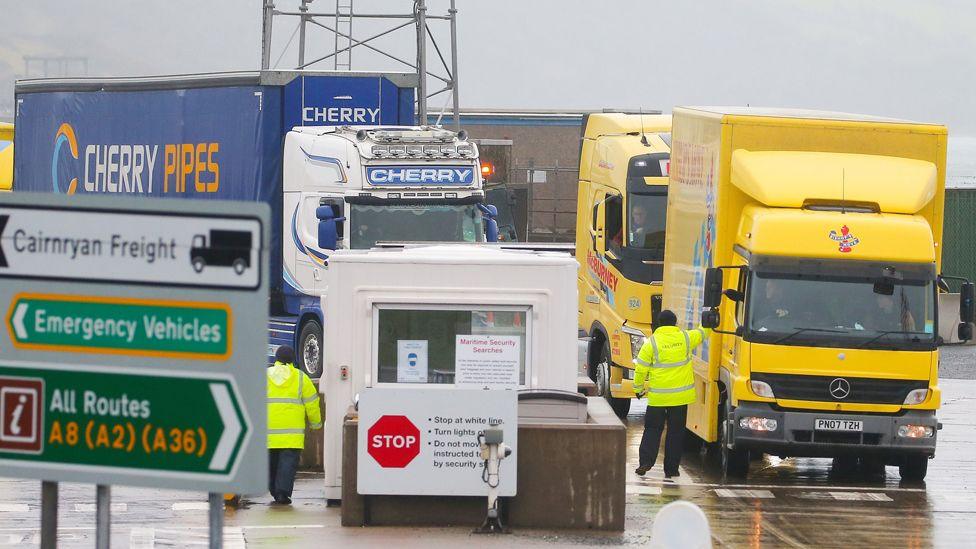NI Protocol: Five things we learned from Sefcovic visit
- Published
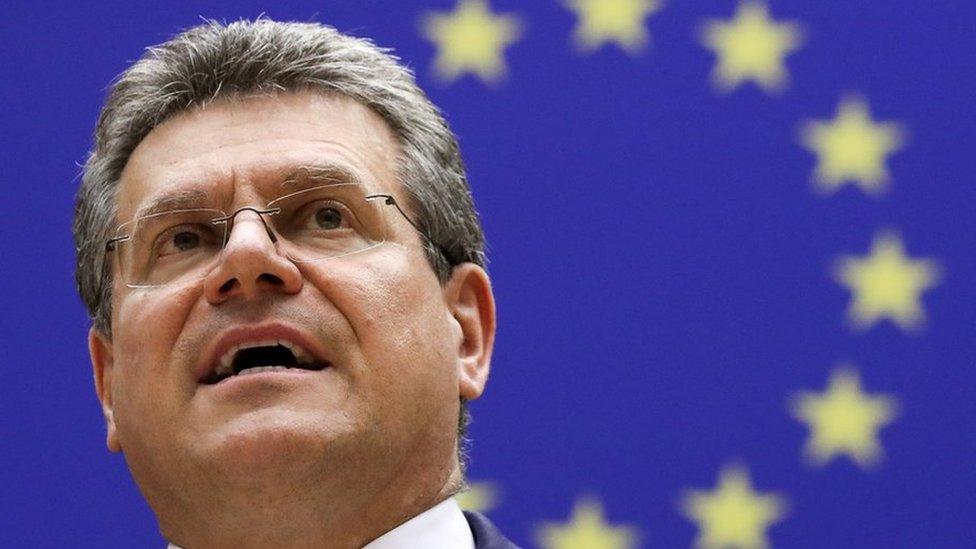
Maros Sefcovic visited Northern Ireland to hear views on the Northern Ireland Protocol
European Commission vice president Maros Sefcovic spent two days in Northern Ireland this week, meeting political, business and civic leaders.
Speaking at Queen's University Belfast, Mr Sefcovic said the EU and UK would both need to make further compromises on the Northern Ireland Protocol.
Here's what we learned over the course of the EU chief's visit.
1. The EU is taking a more conciliatory approach to Northern Ireland
Mr Sefcovic ended his visit by saying the EU was not looking for a political victory in Northern Ireland.
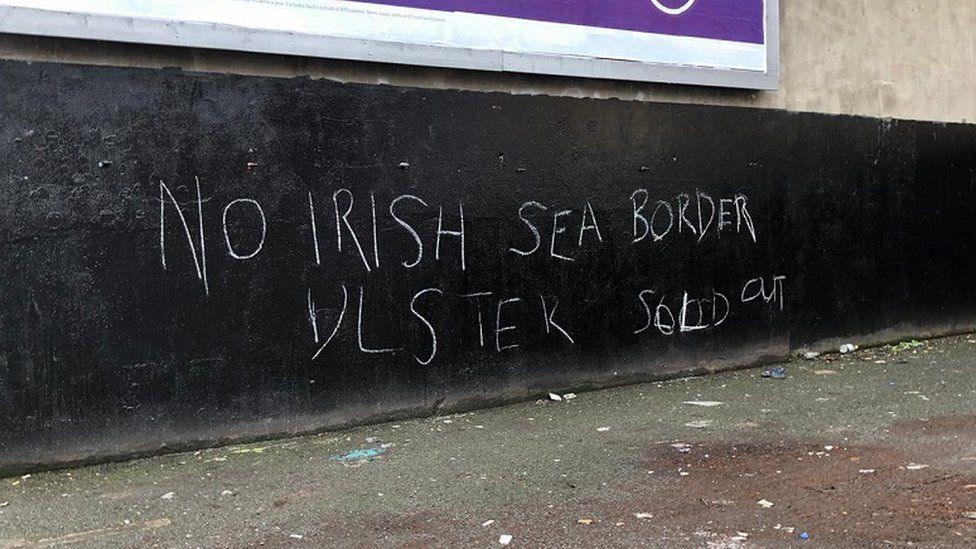
Unionists say the protocol damages trade and threatens Northern Ireland's place in the United Kingdom
He also spoke of the need for a "positive and stable relationship" with the UK after "five years in which clarity and stability have often been lacking".
This emphasises the approach the EU has been taking in recent months.
In July, the European Commission was expected to take a legal action against the UK to the next stage. Instead, it effectively paused the case.
Then on Monday when the UK unilaterally announced it was extending some of the protocol "grace periods" the EU gave a muted reaction, merely noting the UK move.
Irish broadcaster RTÉ has reported the German government has pushed this approach, suggesting a more "proportionate" approach to the protocol is required.
2. The EU will suggest new flexibilities
Mr Sefcovic made it clear the EU is preparing to bring forward new proposals to reduce the negative impacts of the protocol.
He said officials had been going through the EU rule book with a "fine tooth comb" in an effort to come up with "creative and solid" ways to reduce the difficulties in moving goods from Great Britain to Northern Ireland.
It is understood there could be a unique agri-food deal for Northern Ireland as well as proposals on customs.
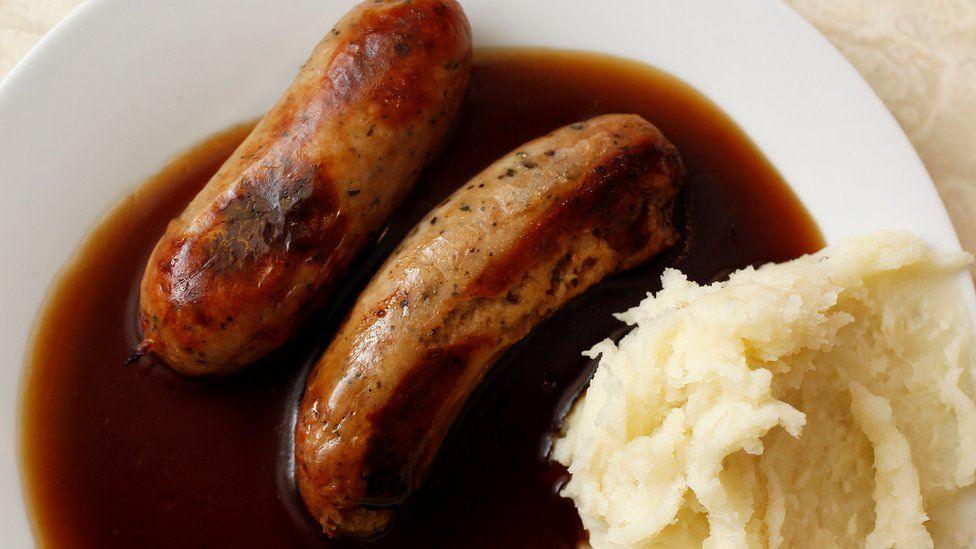
The protocol has implications for fresh meat produce going from GB to NI
Mr Sefcovic's technical team spoke to Northern Ireland business organisations and they are sharing ideas.
However, he said the UK government would need to deliver on a long-standing promise to give the EU real-time information on trade flows from Great Britain to Northern Ireland.
3. Northern Ireland politicians could get a bigger role
Mr Sefcovic talked about "enhancing the participation of Northern Irish political institutions and stakeholders" in the implementation of the protocol.
Northern Ireland ministers and officials already participate in some of the protocol institutions, like the Joint Committee.
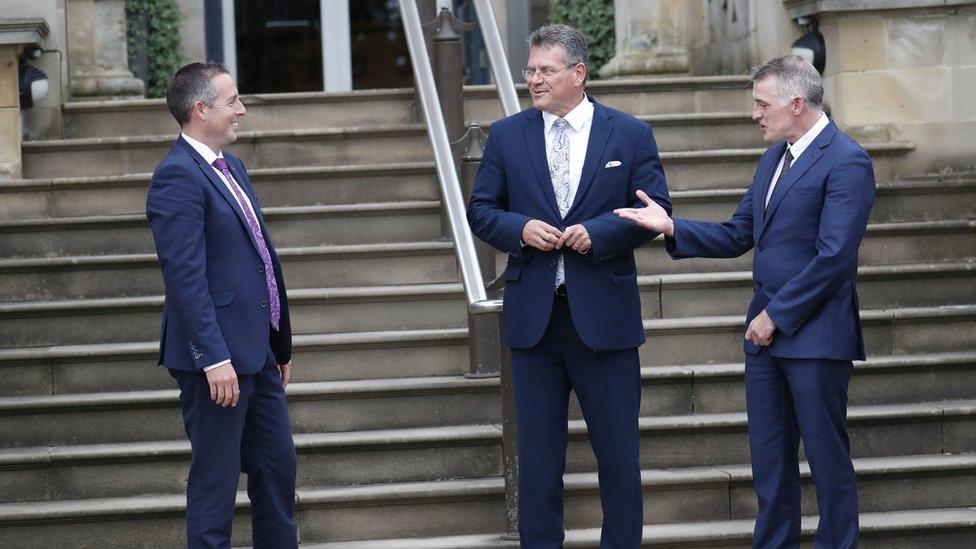
Mr Sefcovic (centre) met First Minister Paul Givan (left) and Declan Kearney, junior minister at the Executive Office during a visit to Stormont
But these are primarily EU-UK engagements, so he seems to be suggesting a more direct link to Stormont.
One idea he mentioned was a Northern Ireland Assembly - European Parliament interparliamentary group.
Mr Sefcovic and his team also spoke to Queens University academics who have suggested a range of ways, external NI's elected representatives can be more involved.
4. The EU is still keen to push protocol benefits
As well as listening to people's difficulties with the protocol, Mr Sefcovic was also keen to talk about its potential benefits.

Jam on both sides of your toast? The EU is keen to push the benefits of the NI Protocol
The protocol means Northern Ireland has "unfettered" goods access to both the Great Britain and European Union markets: a unique position.
Mr Sefcovic was very taken with the phrase he heard from one local business leader: "It's like having jam on both sides of the bread."
This arrangement should make it an attractive location for manufacturing investors from the United States and other third countries.
But Mr Sefcovic said investors would need certainty about what they were getting into.
"If we are to turn this opportunity into reality, the protocol must be properly implemented," he said.
5. European Court of Justice is a red line
Throughout his visit, Mr Sefcovic said the protocol was not up for renegotiation.
In reality, that seems to mean the fundamental underpinnings of the protocol are not up for renegotiation.
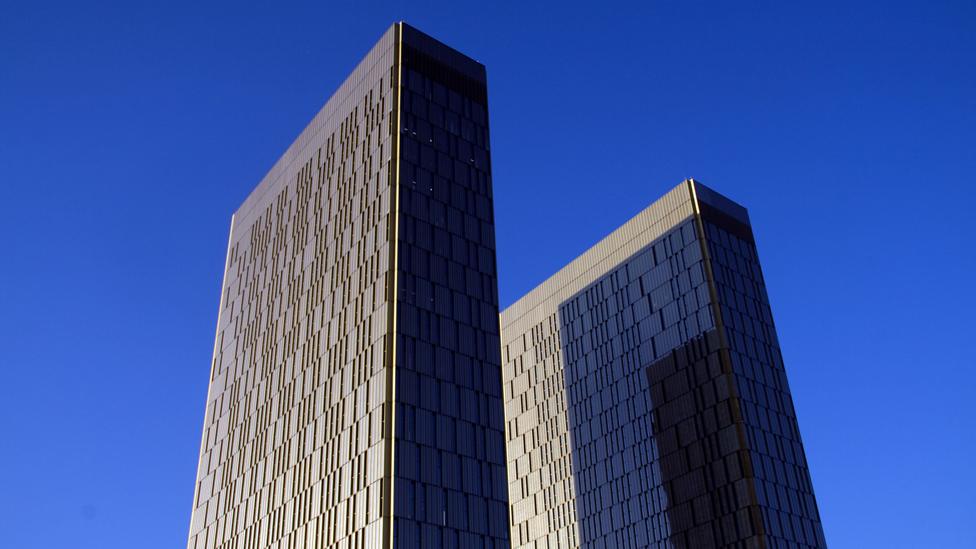
European Court of Justice headquarters, Luxembourg
Chief among these is the role of the European Court of Justice (ECJ).
The ECJ is the EU's highest court - it is the supreme interpreter of the rules of the single market.
The protocol works by keeping Northern Ireland in the EU's single market for goods, so the EU says any attempt to remove the role of the ECJ would simply unravel the protocol.
'It would effectively mean cutting Northern Ireland off the EU's single market,' Mr Sefcovic said.
The difficulty here is the UK's Brexit minister, Lord Frost, has equally robust views.
He says the protocol will not work on the basis of "automatic extra-territorial application of EU law".
This issue may prove difficult to fudge.
Related topics
- Published9 September 2021
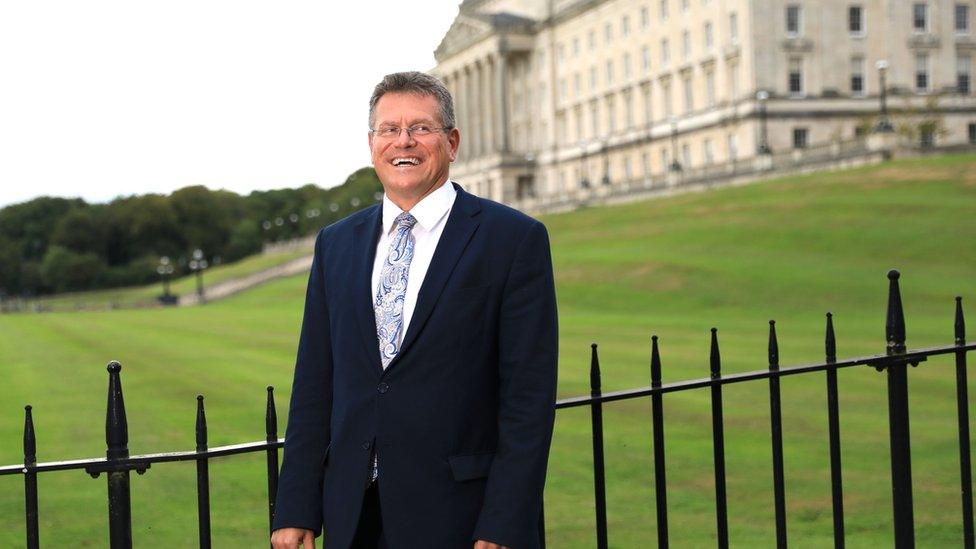
- Published31 August 2021
